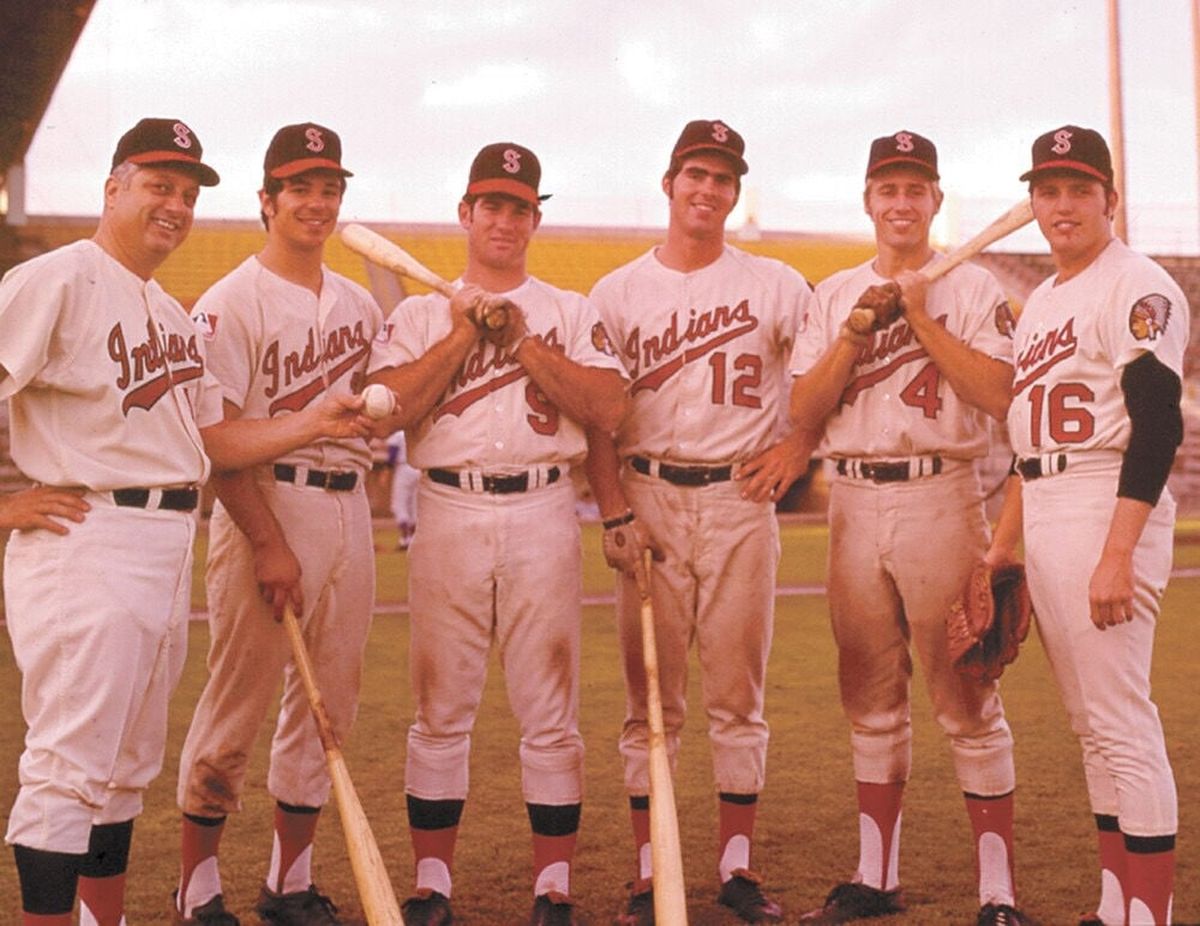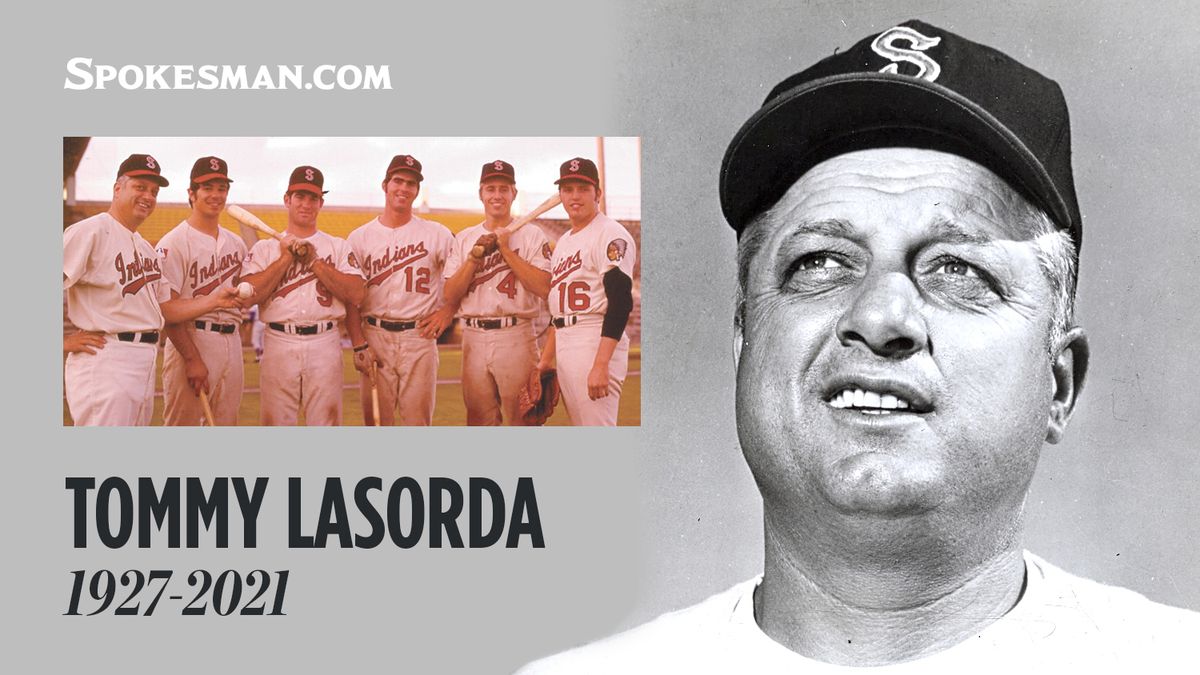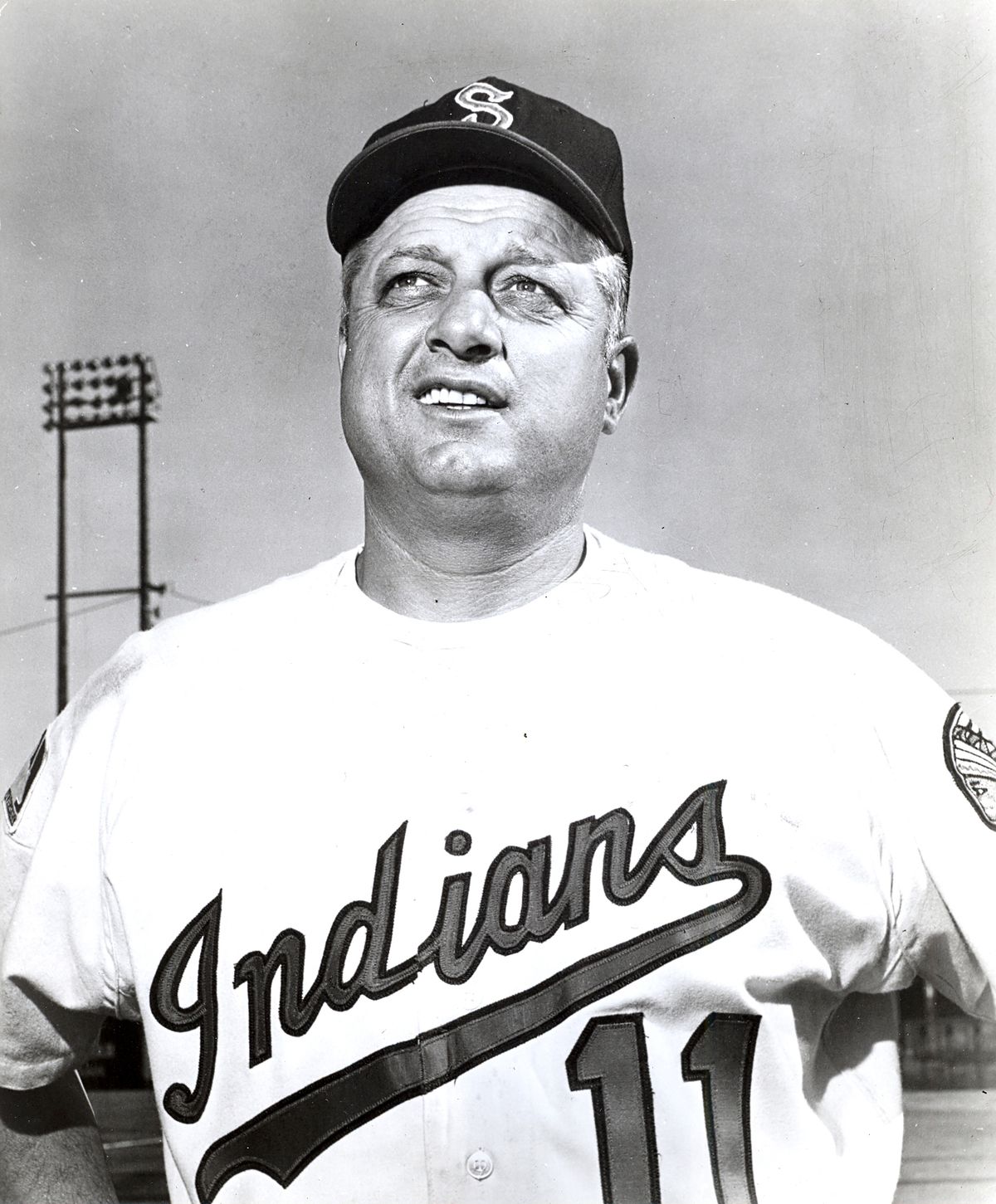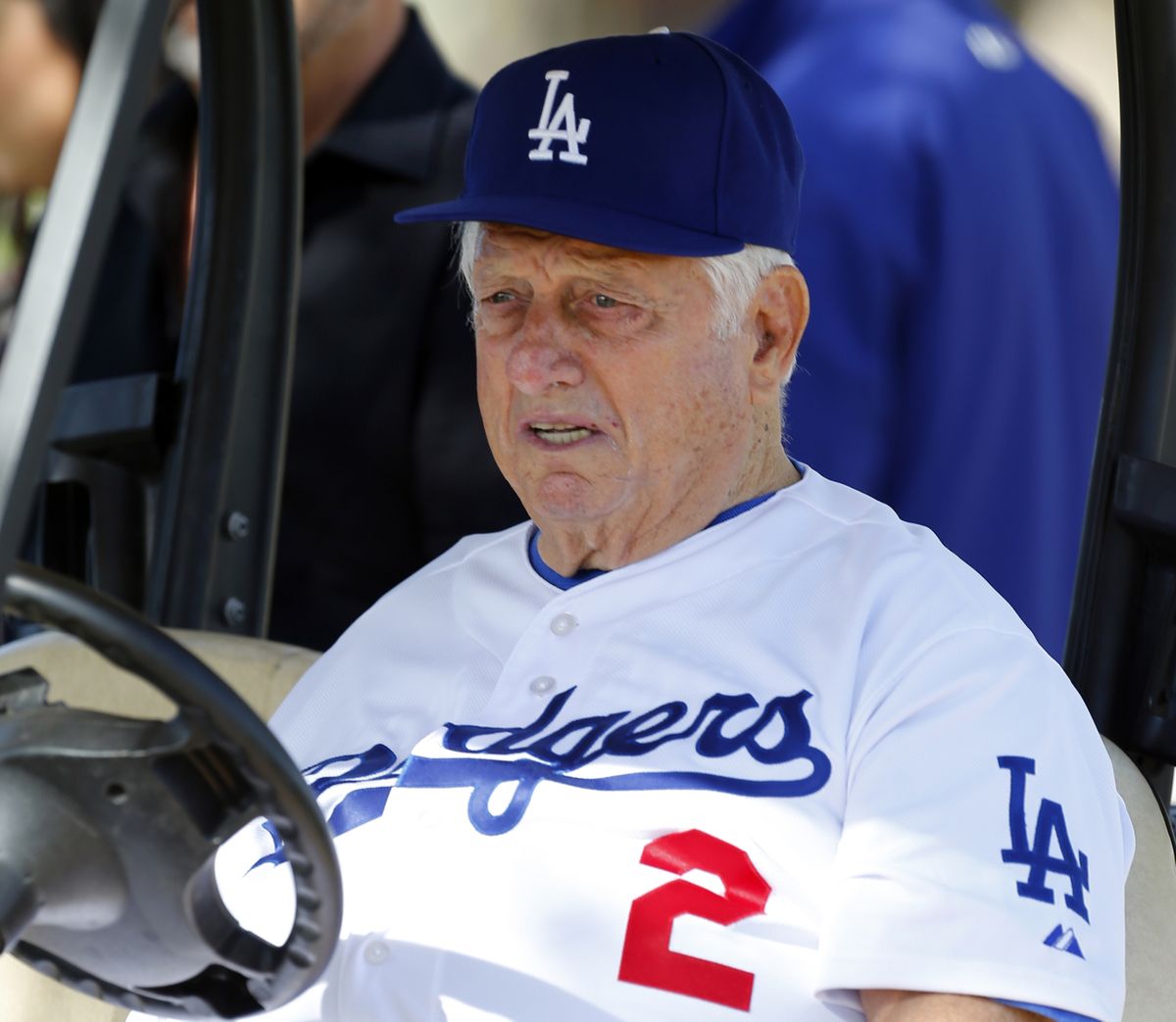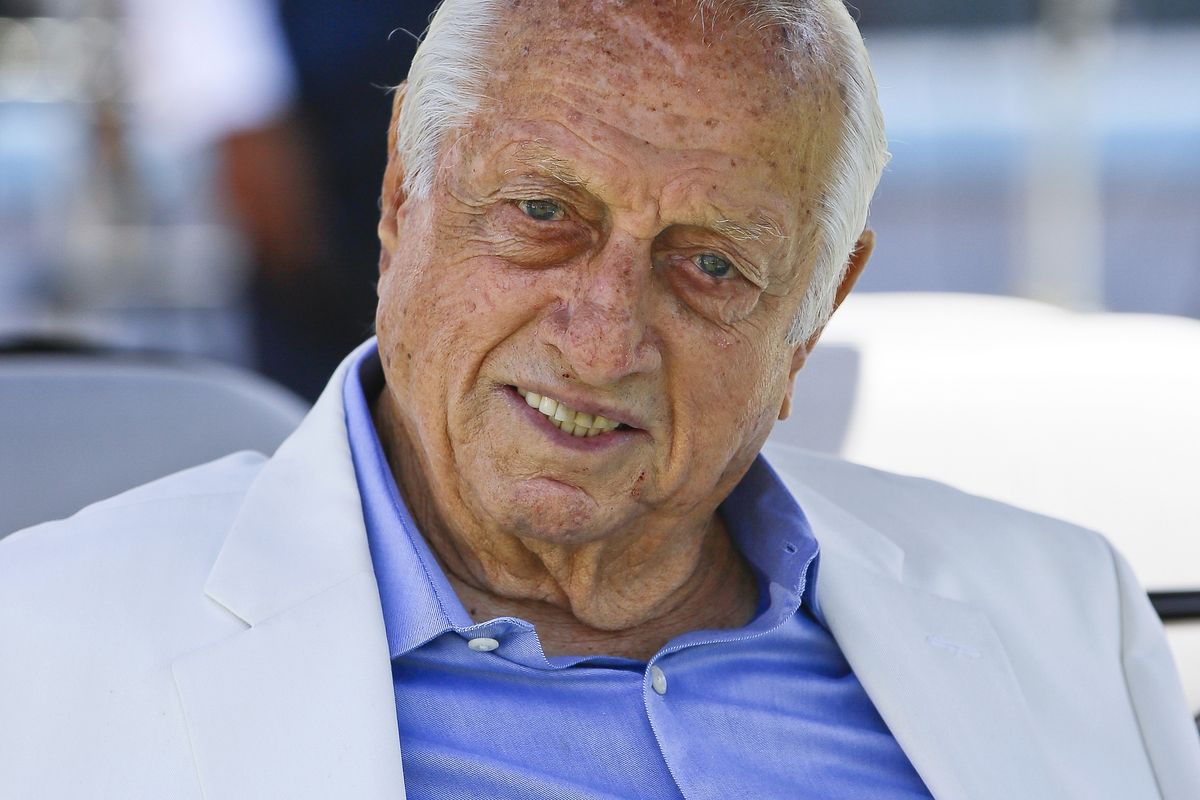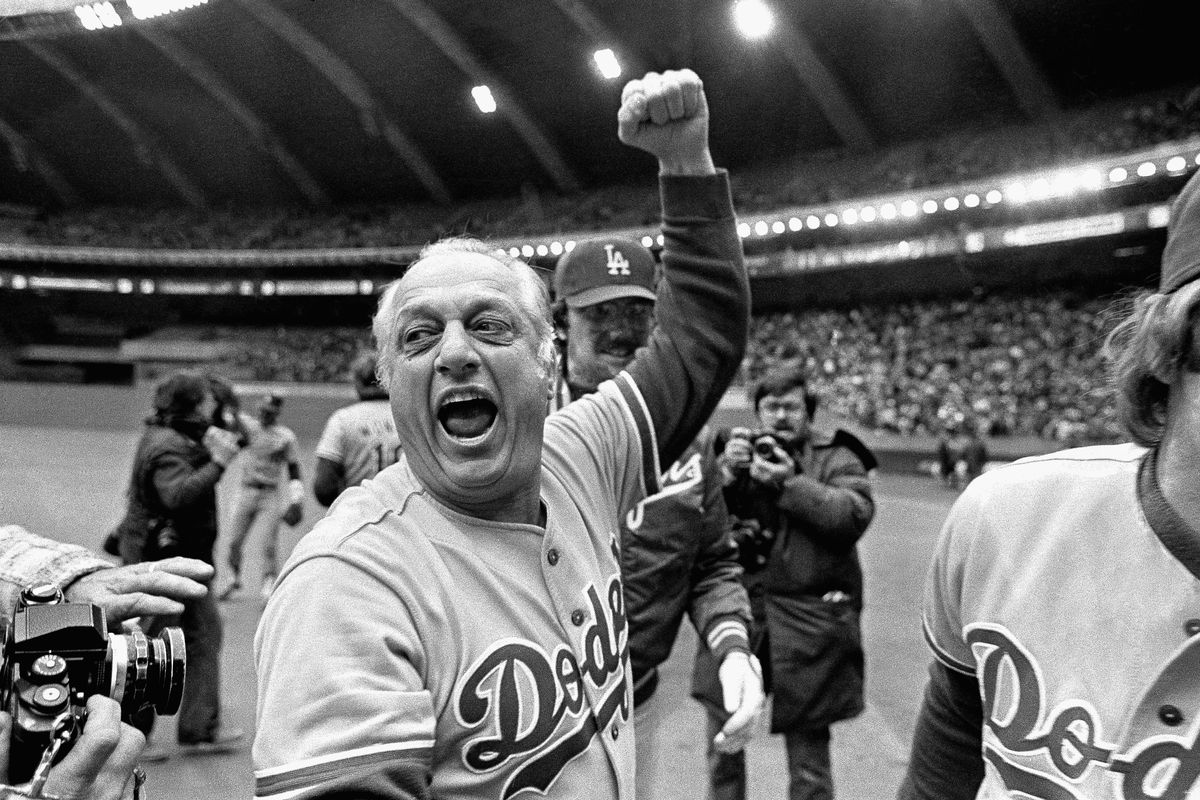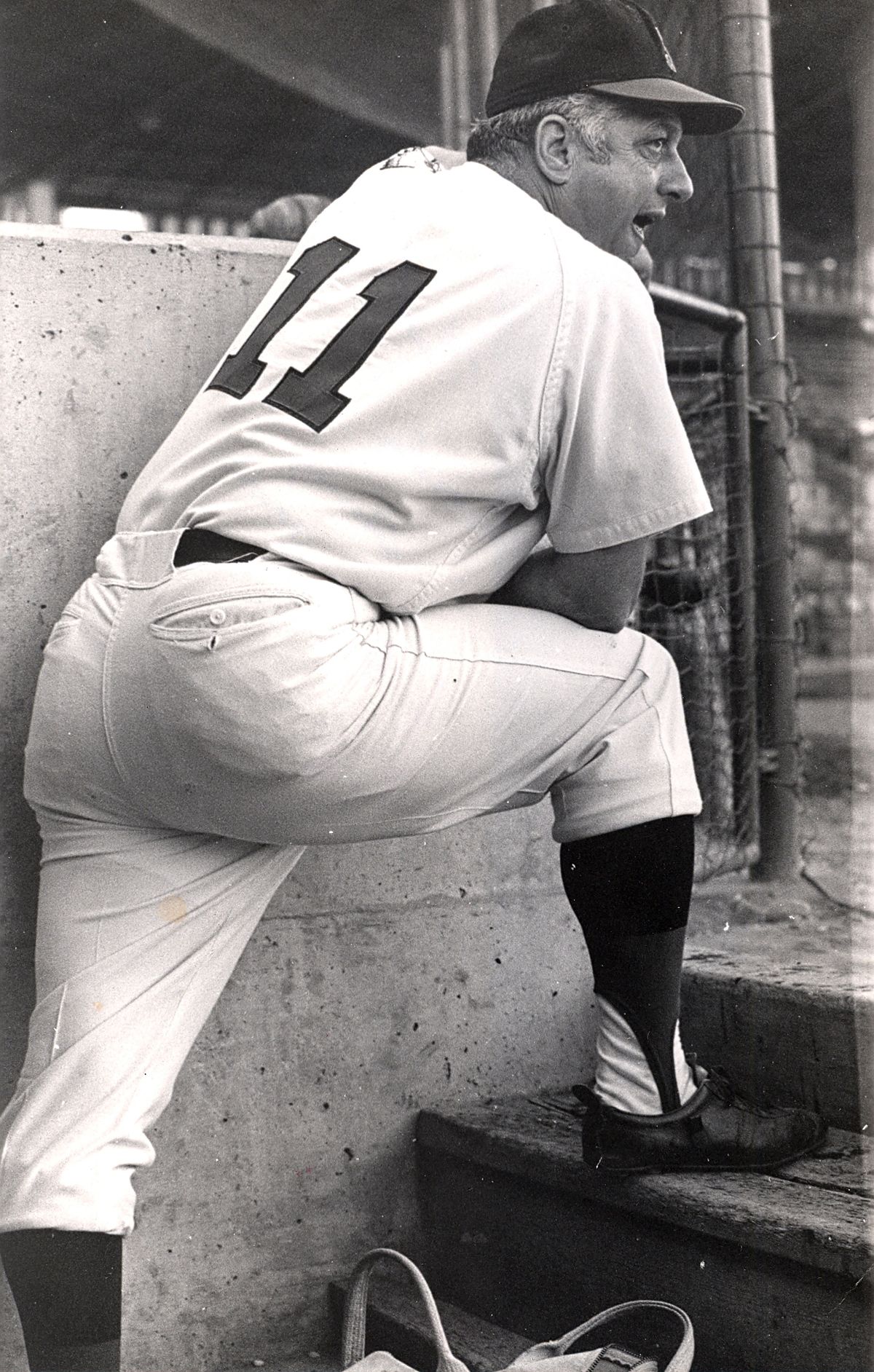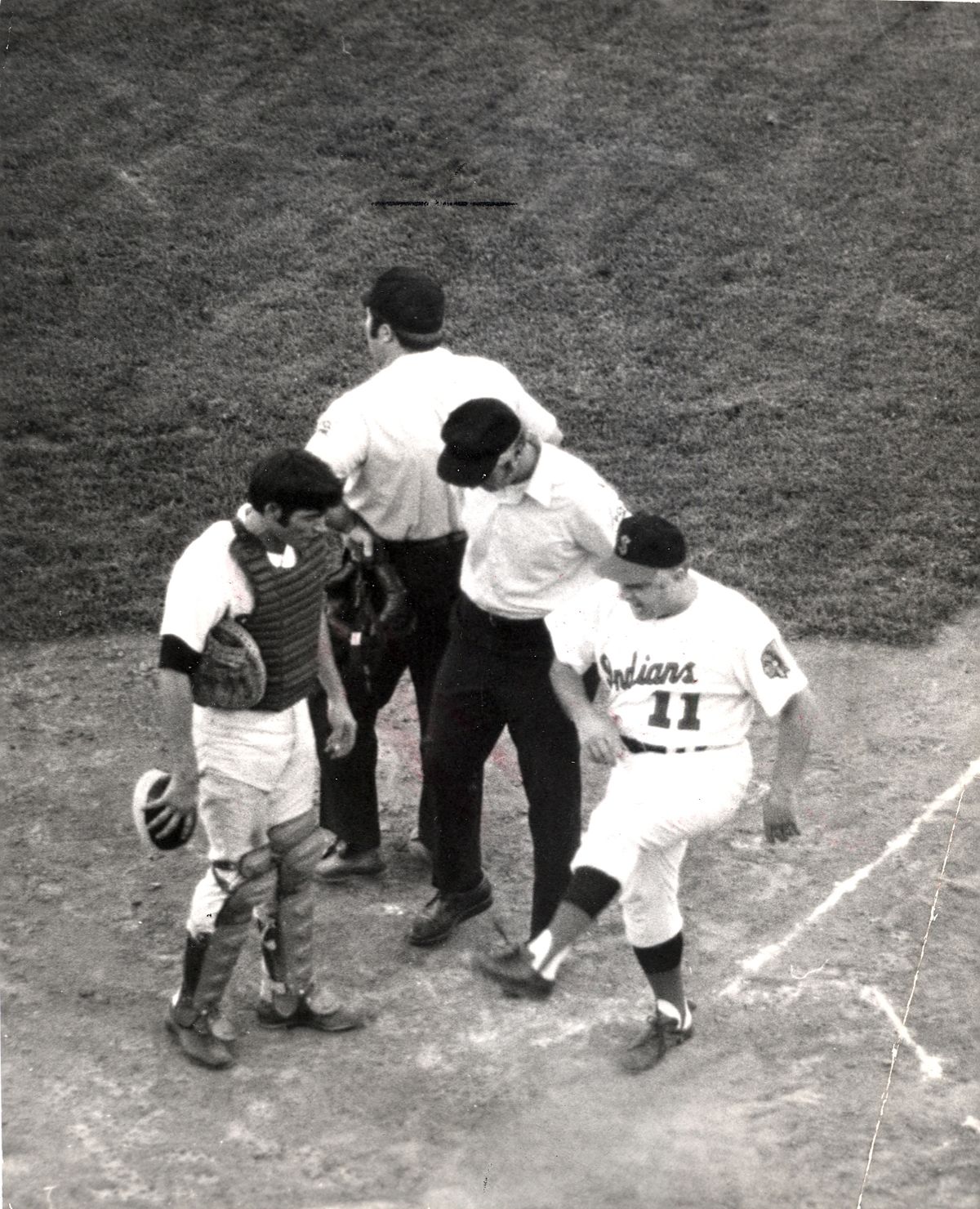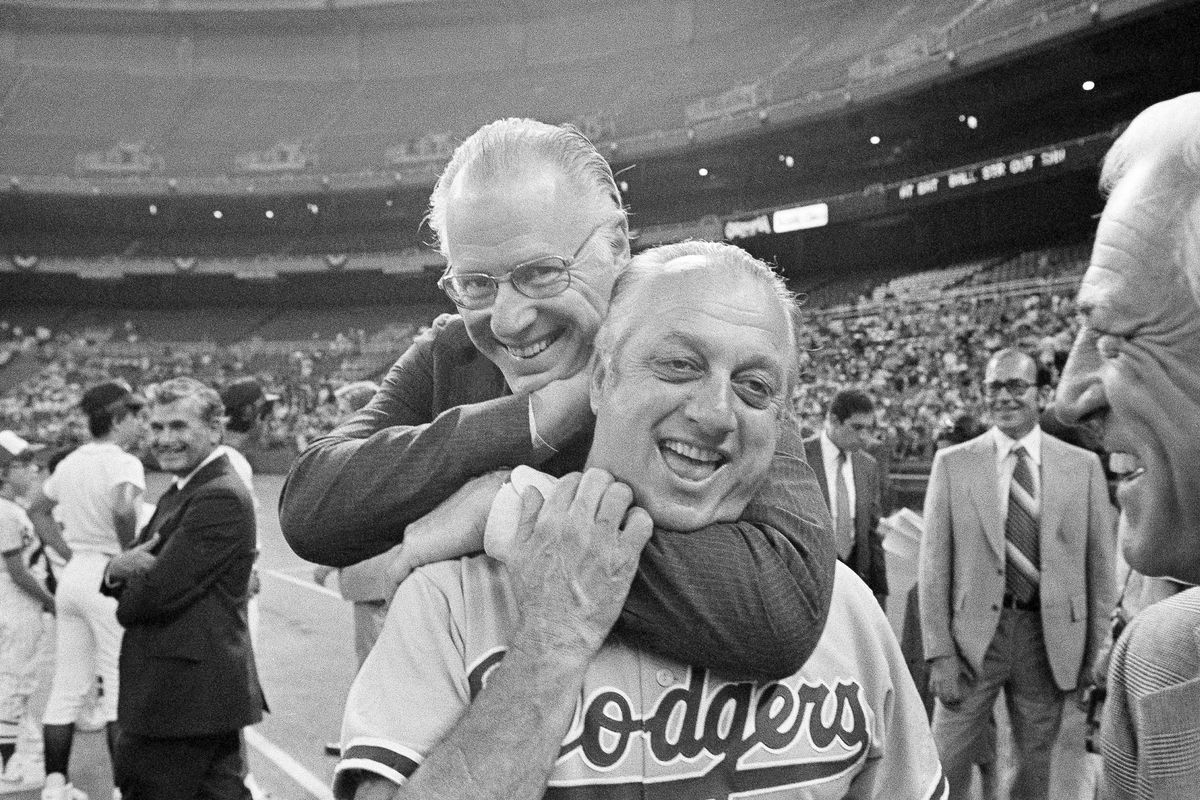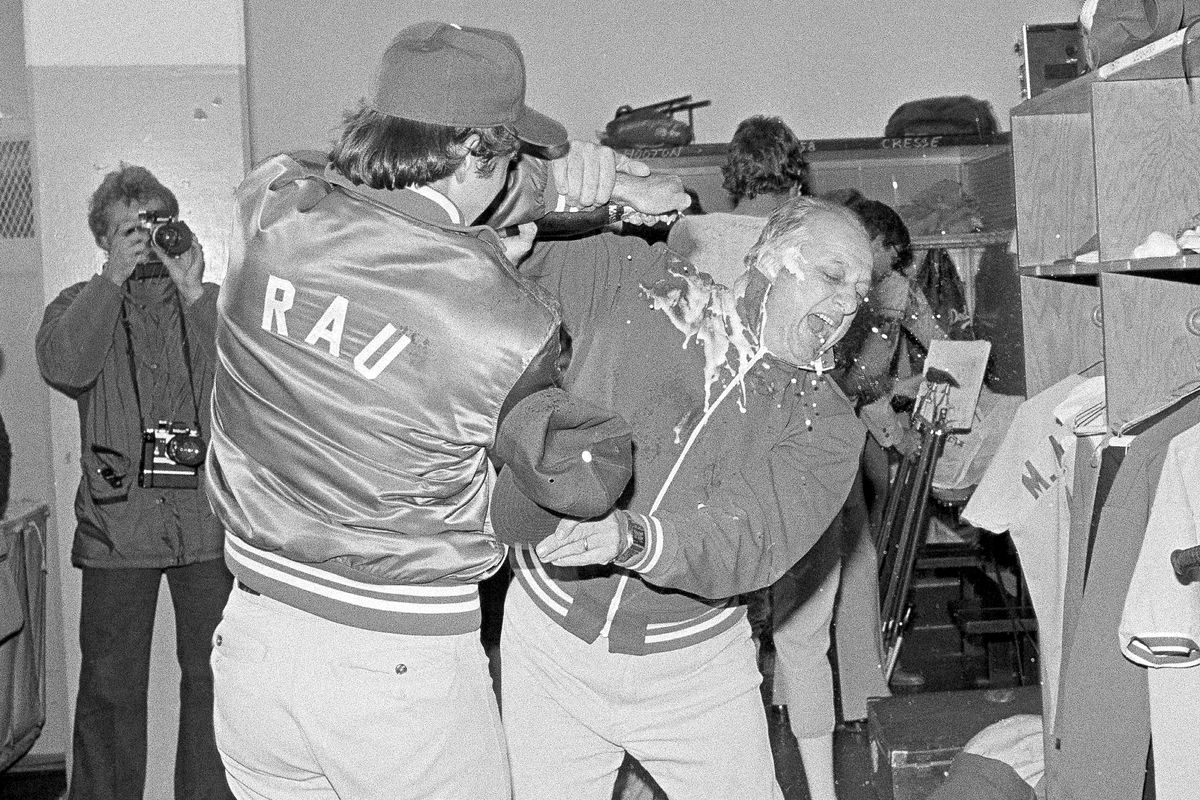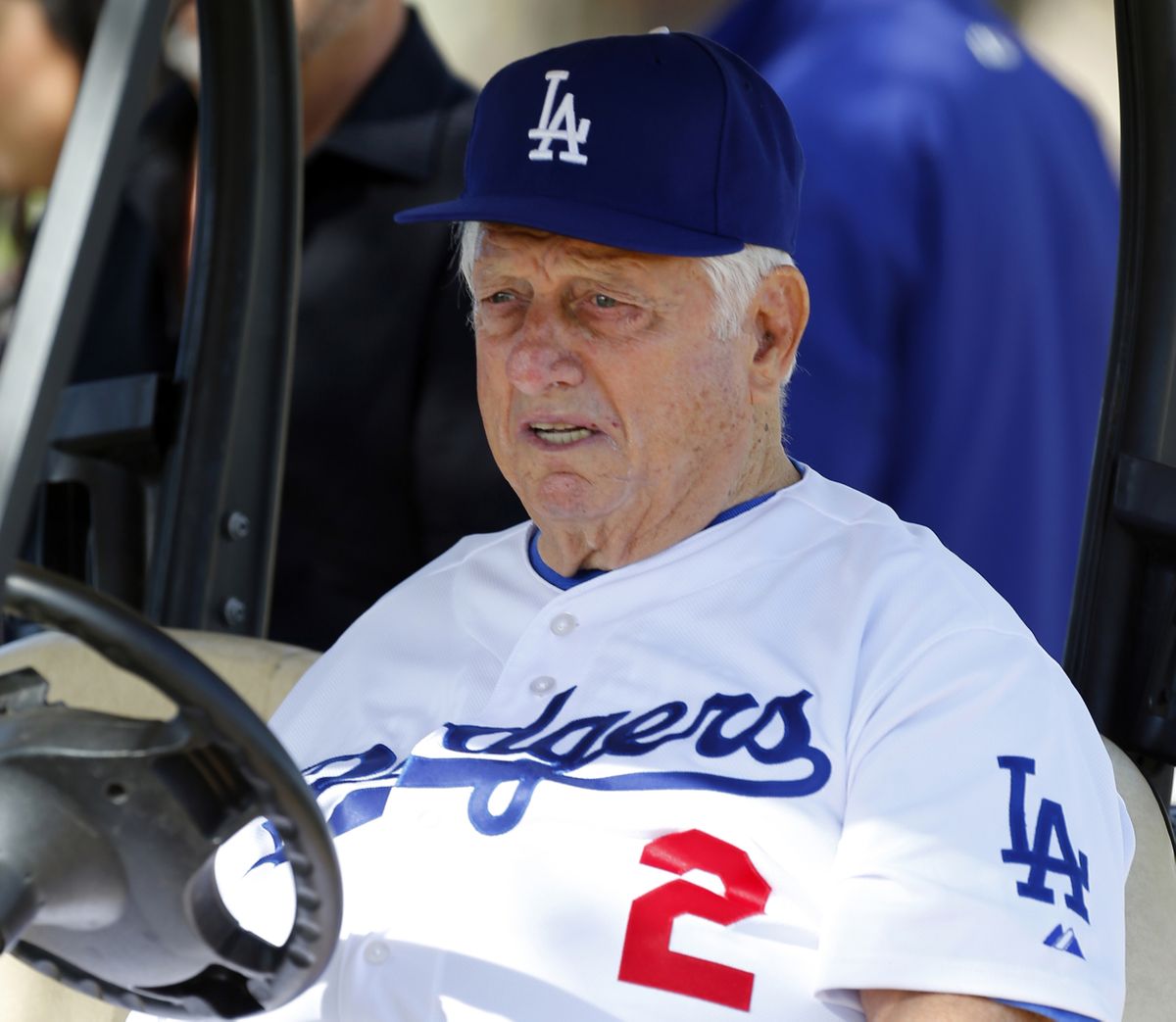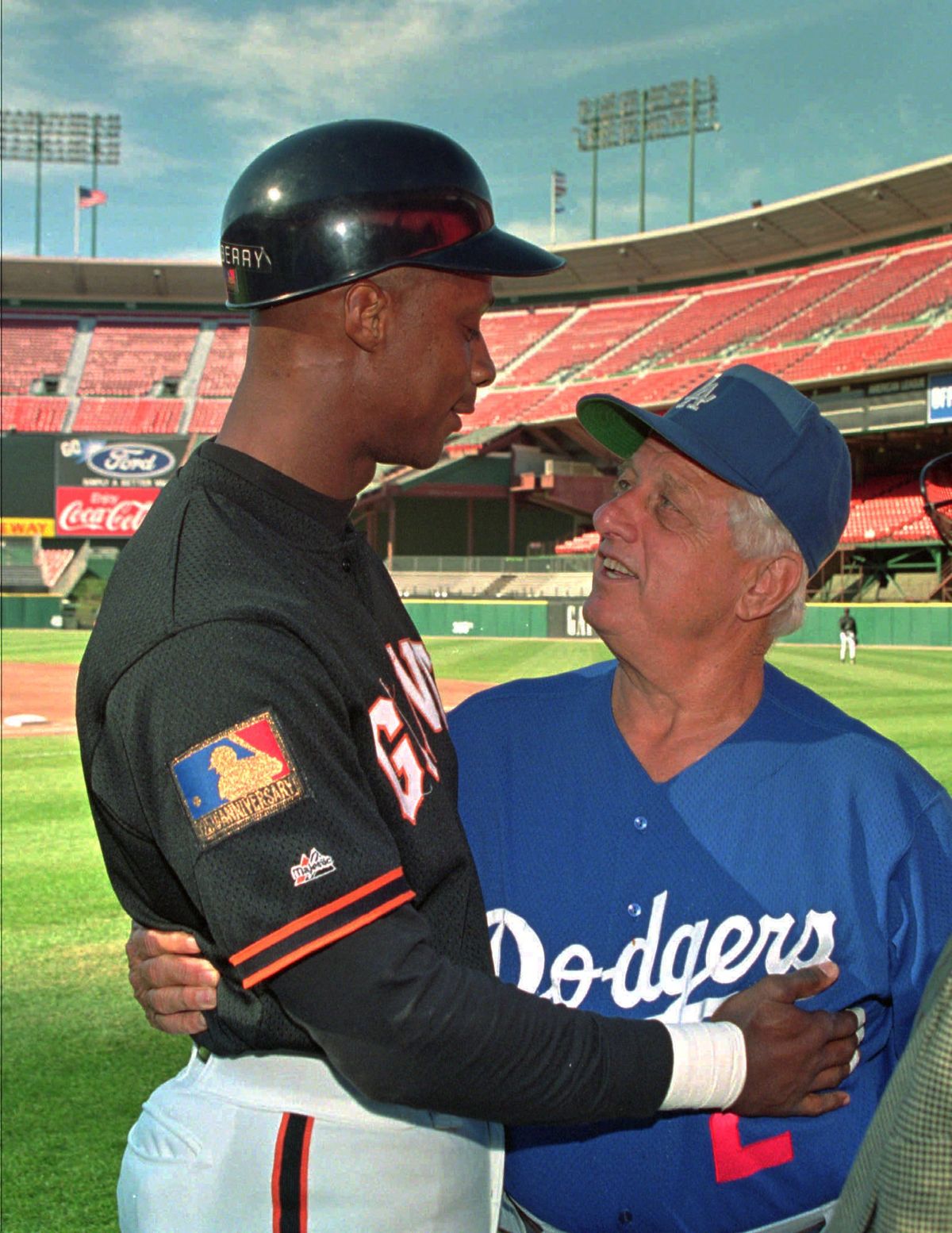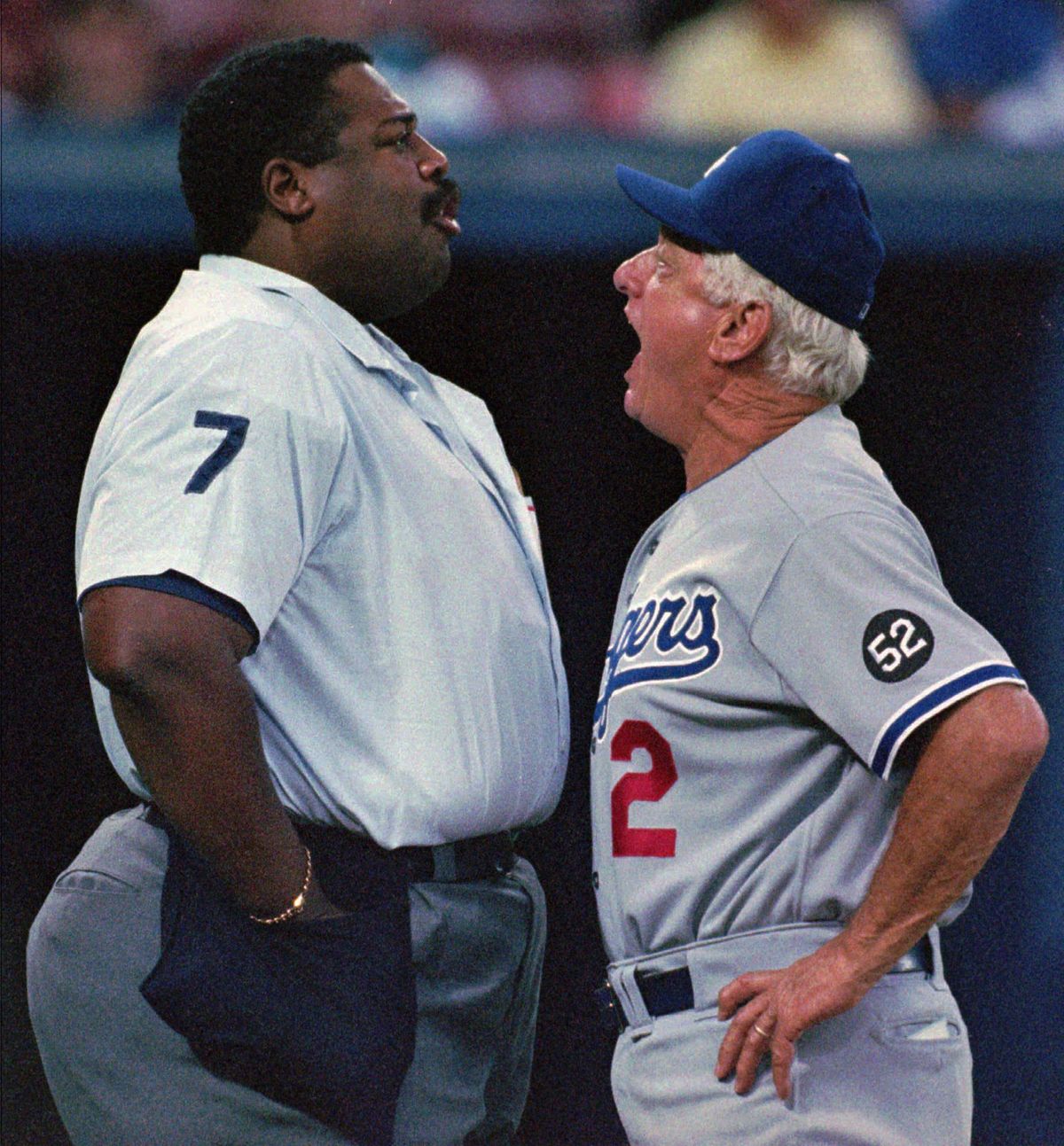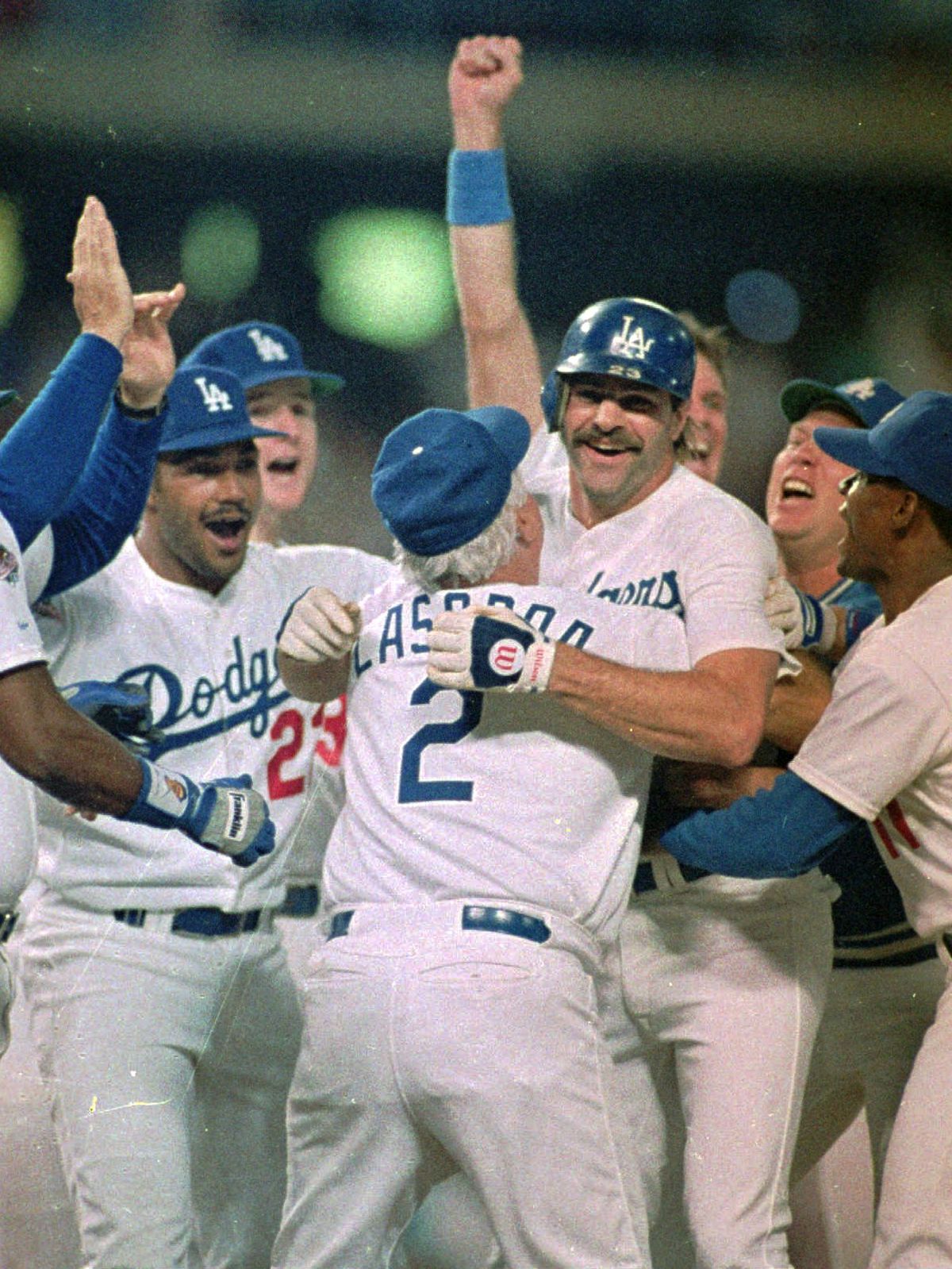Tommy Lasorda, fiery Hall of Fame Dodgers and former Spokane Indians manager, dies at 93
Manager Tommy Lasorda poses in September 1969 during his first season, one year before Spokane’s PCL title. (The Spokesman-Review)Buy a print of this photo
From staff and wire reports
LOS ANGELES – Tommy Lasorda, the fiery Hall of Fame manager who guided the 1970 Spokane Indians to the Pacific Coast League championship and the Los Angeles Dodgers to two World Series titles and later became an ambassador for the sport he loved during his 71 years with the franchise, has died. He was 93.
The Dodgers said Friday he had a heart attack at his home in Fullerton, California. Resuscitation attempts were made en route to a hospital, where he was pronounced dead shortly before 11 p.m. Thursday.
Manager Tommy Lasorda poses in September 1969 during his first season, one year before Spokane’s PCL title. (The Spokesman-Review)Buy a print of this photo
The 1970 PCL championship team is widely regarded as one of the greatest minor league teams of all-time, with Lasorda at the helm.
That team won the Northern Division by 26 games with a loaded roster featuring Steve Garvey, Bobby Valentine, Tom Paciorek, Davey Lopes and Bill Buckner.
“We are deeply saddened by the passing of Tommy Lasorda, one of the most iconic figures in the history of our franchise,” Spokane Indians senior vice president Otto Klein said. “Tommy was a larger-than-life personality and true ambassador for the sport who left an indelible mark on the Spokane Indians. Our thoughts are with his family and friends in this difficult time.”
After Spokane swept Hawaii 4-0 in the 1970 PCL championship series, Islanders manager Chuck Tanner told Lasorda: “That’s a major league ball club you’ve got there.”
Members of that team played parts of 217 seasons in the major leagues.
“There were a group of us, I think, who were destined to become Dodgers,” Garvey said in 1993. “Tom did a great job making sure everybody knew their role. And maybe being part of a juggernaut helped add some years to some guys’ professional careers.”
Garvey and Lopes later manned the Dodgers’ infield for a decade and were joined by Ron Cey, who arrived to the Spokane Indians in 1971.
“That group you saw in Spokane basically was the group that bridged the gap in Los Angeles from a team that was the old Brooklyn Dodgers to one that was the real Los Angeles Dodgers,” Garvey said. “And Tom was the catalyst of it.”
Lasorda had a history of heart problems, including a heart attack in 1996 that ended his managerial career and another in 2012 that required him to have a pacemaker.
He had just returned home Tuesday after being hospitalized since Nov. 8 with heart issues.
Lasorda attended the Dodgers’ Game 6 victory over the Tampa Bay Rays on Oct. 27 in Texas that clinched the team’s first World Series title since 1988.
“It feels appropriate that in his final months, he saw his beloved Dodgers win the World Series for the first time since his 1988 team,” MLB Commissioner Rob Manfred said.
Lasorda had served as special adviser to team owner and chairman Mark Walter for the past 14 years, and maintained a frequent presence at games sitting in Walter’s box.
“He was a great ambassador for the team and baseball, a mentor to players and coaches, he always had time for an autograph and a story for his many fans and he was a good friend,” Walter said. “He will be dearly missed.”
Lasorda worked as a player, scout, manager and front office executive with the Dodgers dating to their roots in Brooklyn.
He compiled a 1,599-1,439 record, won World Series titles in 1981 and ’88, four National League pennants and eight division titles while serving as Dodgers manager from 1977-96.
He was elected to baseball’s Hall of Fame in 1997 as a manager. He guided the U.S. to a baseball gold medal at the 2000 Sydney Olympics.
Lasorda was the franchise’s longest-tenured active employee since Hall of Fame broadcaster Vin Scully retired in 2016 after 67 years. He drew standing ovations when introduced at games in recent years.
“There are two things about Tommy I will always remember,” Scully said. “The first is his boundless enthusiasm. Tommy would get up in the morning full of beans and maintain that as long as he was with anybody else. The other was his determination. He was a fellow with limited ability and he pushed himself to be a very good Triple-A pitcher. He never quite had that something extra that makes a major leaguer, but it wasn’t because he didn’t try.”
Lasorda often proclaimed, “I bleed Dodger blue” and he kept a bronze plaque on his desk reading: “Dodger Stadium was his address, but every ballpark was his home.”
As a pitcher, Lasorda had a modest career at the major league level, going 0-4 with a 6.48 ERA and 13 strikeouts from 1954-56.
Born Thomas Charles Lasorda on Sept. 22, 1927, in Norristown, Pennsylvania, his pro career began when he signed with the Philadelphia Phillies as an undrafted free agent in 1945. He missed the 1946 and ’47 seasons while serving in the Army.
Lasorda returned in 1948 and once struck out 25 players in a 15-inning game. In his next two starts, he struck out 15 and 13, gaining the attention of the Dodgers, who drafted him from the Phillies. He played in Panama and Cuba before making his major league debut on Aug. 5, 1954, for the Brooklyn Dodgers. Although he didn’t play in the 1955 World Series, he won a ring as a member of the team.
Lasorda pitched for the Dodgers for two seasons before the Kansas City Athletics bought his contract. He was traded to the Yankees in 1956 and sent down to the Triple-A Denver Bears before being sold back to the Dodgers in 1957. During his time with the Bears, Lasorda was influenced by manager Ralph Houk, who became his role model.
“Ralph taught me that if you treat players like human beings, they will play like Superman,” Lasorda said in his 2009 biography “I Live For This: Baseball’s Last True Believer.”
“He taught me how a pat on a shoulder can be just as important as a kick in the butt.”
Lasorda stayed on with the Dodgers as a scout after they released him in 1960. That was the beginning of a steady climb through the Dodgers’ system that culminated in his 1973 promotion to the big league staff under longtime Hall of Fame manager Walter Alston.
Lasorda spent four seasons as third-base coach while considered to be the heir apparent to Alston, who retired in September 1976.
Lasorda took over and his gregarious personality was in stark contrast to his restrained predecessor. Lasorda was known for his enthusiasm and outspoken opinions about players. He would jump around and pump his arms in the air after Dodgers victories and embrace players in the dugout after home runs or other good plays.
As beloved as Lasorda was publicly, behind the scenes he was known for cussing a blue streak with reporters, rendering many quotes unusable.
Some of his most memorable rants live on via the internet, notably one from July 1982 involving Kurt Bevacqua of the San Diego Padres, who called Lasorda “that fat little Italian” after Dodgers pitcher Tom Niedenfuer was fined $500 for beaning Joe Lefebvre, Bevacqua’s teammate.
Lasorda was known for his friendship with Frank Sinatra and other Hollywood stars. Sinatra sang the national anthem on opening day of the 1977 season to mark Lasorda’s debut as manager. The faux-wood paneled walls of Lasorda’s office were crowded with black-and-white autographed photos of his celebrity friends, the framed glass stained by red sauce from the pasta served in large foil trays after games.
Lasorda’s appetite for winning and eating was equally voracious. His weight ballooned throughout his years as manager, and he explained, “When we won games, I’d eat to celebrate. And when we lost games, I’d eat to forget.”
He parlayed his struggles into a role as pitchman for a popular weight loss product.
Lasorda managed nine National League Rookie of the Year winners, including Fernando Valenzuela, Steve Sax, Steve Howe, Mike Piazza, Eric Karros and Hideo Nomo.He managed in four All-Star games. He was serving as third base coach in the 2001 All-Star game in Seattle when he tumbled backward while trying to avoid the shattered barrel of Vladimir Guerrero’s bat in a comical scene.
In 1998, Lasorda became interim general manager after Fred Claire was fired in the middle of the season. He resigned from that job after the season and was appointed senior vice president. After the team was sold in 2004 to Frank McCourt, Lasorda became special adviser to the chairman, and maintained a busy schedule of travel and public appearances on behalf of the club until his death.
Lasorda had a heart attack during a 2012 trip to New York to represent the Dodgers at the major league draft. He had a pacemaker implanted and it was replaced five years later.
He is survived by Jo, his wife of 70 years. They have a daughter Laura and a granddaughter Emily. The couple’s son, Tom Jr., died in 1991 of AIDS-related complications.
